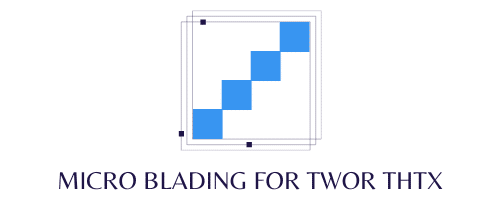What Are the Most Effective Natural Remedies for Menopausal Hot Flashes?

If you’re a woman of a certain age, you’re likely familiar with the term "hot flashes". These sudden feelings of intense heat, often accompanied by a red, flushed face and sweating, are among the most common symptoms of menopause. They can occur at any time and can cause significant discomfort. Menopause is a natural part of aging, and while there’s no way to prevent it, there are ways to manage its symptoms. This article will delve into the most effective natural remedies for menopausal hot flashes.
The Science Behind Hot Flashes
Before delving into the remedies, let’s first understand what causes hot flashes.
Cela peut vous intéresser : How Do Community-Based Art Projects Promote Mental Health and Social Cohesion?
During menopause, the levels of the hormone estrogen in a woman’s body decrease. This hormonal imbalance affects the hypothalamus, the part of the brain that controls body temperature. If the hypothalamus misinterprets body temperature, it can cause a hot flash.
A study you can find on Google Scholar indicates that about 75% of all menopausal women experience hot flashes. They can last for a few seconds or several minutes, and their frequency varies from woman to woman. Some women may have them several times a day, while others may only experience them a few times a week.
A lire également : Can Peer Support Programs Improve Outcomes for Individuals with Substance Use Disorders?
Natural Remedies for Hot Flashes
There are numerous natural remedies that can help manage hot flashes. These treatments do not involve the use of pharmaceutical drugs and are often popular because they have fewer side effects.
Dietary Changes
One of the most effective ways to manage hot flashes is through dietary changes. Spicy foods, alcohol, and caffeine have all been known to trigger hot flashes. It might be a good idea to reduce their consumption or avoid them altogether. Instead, load up on fruits, vegetables, whole grains, and lean proteins for a balanced diet. Maintaining a healthy weight can also help reduce the frequency and severity of hot flashes.
Phytoestrogens
Phytoestrogens are plant-derived compounds that can mimic the effects of estrogen in the body. Foods rich in phytoestrogens include soy products, flaxseeds, sesame seeds, and many types of berries. Various studies, which you can find on Google Scholar, have shown that phytoestrogens can help reduce the frequency and severity of hot flashes.
Exercise and Stress Management
Regular physical activity and stress management can also help manage hot flashes. Exercise can help maintain a healthy weight and promote better sleep, while stress management techniques such as yoga, meditation, and deep breathing can help keep hot flashes at bay.
Supplements for Hot Flashes
Many women turn to supplements as a natural remedy for hot flashes.
Black Cohosh
Black Cohosh is a plant native to North America that has been used for centuries to treat women’s health issues. Studies have shown it to be effective in reducing hot flashes, although its exact mechanism of action is still not well understood.
Vitamin E
Vitamin E is an antioxidant that is believed to help reduce hot flashes. While studies on its effectiveness are mixed, some women have reported relief from hot flashes after taking vitamin E supplements.
Evening Primrose Oil
Evening Primrose Oil is a popular supplement for menopausal symptoms, including hot flashes. Some studies suggest it might be effective in reducing the severity and frequency of hot flashes.
The Role of Advertisement in Perceptions of Menopause
The media often portrays menopause as a time of decline or loss, with a focus on the negative symptoms like hot flashes. Advertisements for menopause treatments often reinforce this perception. However, many women view menopause as a time of liberation, and with the right natural remedies, it’s possible to manage symptoms like hot flashes effectively.
Remember that each woman’s menopause journey is unique, and what works for one woman may not work for another. It’s important to consult with a healthcare provider before starting any new treatment for menopause symptoms. While menopause is a natural part of life, it’s not something to be endured. With the right knowledge and resources, you can navigate this phase of life with grace and confidence.
Traditional Herbal Remedies and Acupuncture
Apart from supplements, there are several traditional herbal remedies and techniques like acupuncture that have been reported to reduce the occurrence and severity of hot flashes.
Traditional Chinese Medicine
Traditional Chinese Medicine (TCM) has been used for thousands of years to balance the body’s energy, or "chi", and improve overall health. TCM includes practices like acupuncture, herbal medicine, tai chi, and qigong. For menopausal symptoms, particularly hot flashes, certain herbs like dong quai, ginseng, and red clover have been used. However, these herbs should be used under the guidance of a TCM practitioner, as their effects can vary depending on the individual.
Acupuncture
Acupuncture, a key component of TCM, has gained significant attention for its potential benefits in reducing menopausal symptoms, including hot flashes. The practice involves the insertion of thin, sterile needles into specific points on the body to balance energy flow. Research articles on PubMed Google and NCBI NLM have revealed that acupuncture may help reduce the frequency and intensity of hot flashes in menopausal women. However, more comprehensive studies are needed to confirm these findings.
Conclusion: Understanding and Managing Menopause
Menopause is a natural process that every woman goes through, and it’s not something to be feared. While it’s true that hot flashes and other menopausal symptoms can be uncomfortable, there are numerous natural remedies available to manage them.
Remember, dietary changes, regular exercise, stress management, phytoestrogens, supplements like Black Cohosh, Vitamin E, Evening Primrose Oil, traditional herbal remedies, and acupuncture can all be part of a comprehensive strategy to manage hot flashes. It’s also worth noting that while these remedies have been effective for some, they may not work for everyone. Consult with your healthcare provider before starting any new treatment strategy to ensure it’s safe and suitable for your specific needs.
And finally, understand that menopause isn’t a disease, but a phase of life. The way it’s portrayed in advertisements shouldn’t influence your perception of it. Instead, focus on your own experience and take a proactive approach to manage your symptoms. With the right knowledge and resources, you can navigate this transition with confidence and grace.
Remember, menopause is not the end of anything, but the beginning of a new chapter in life. And like any transition, it’s easier when you’re prepared. So, arm yourself with knowledge, talk to your healthcare provider, and find the best strategy to manage your menopause symptoms, including those pesky hot flashes. Don’t just endure menopause – embrace it!
